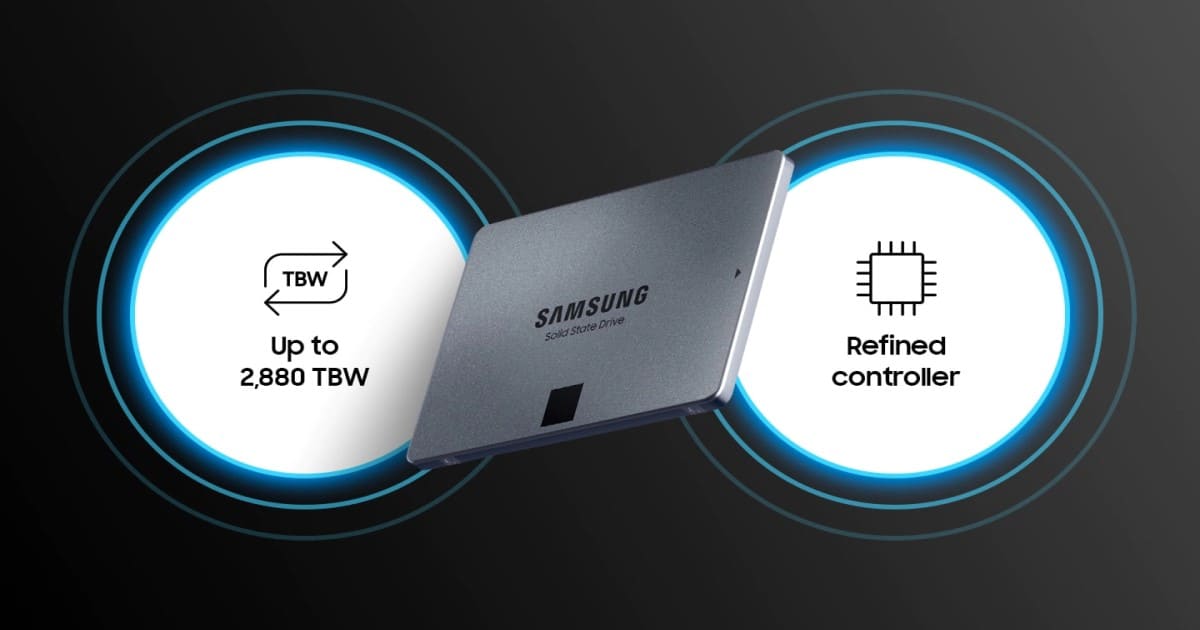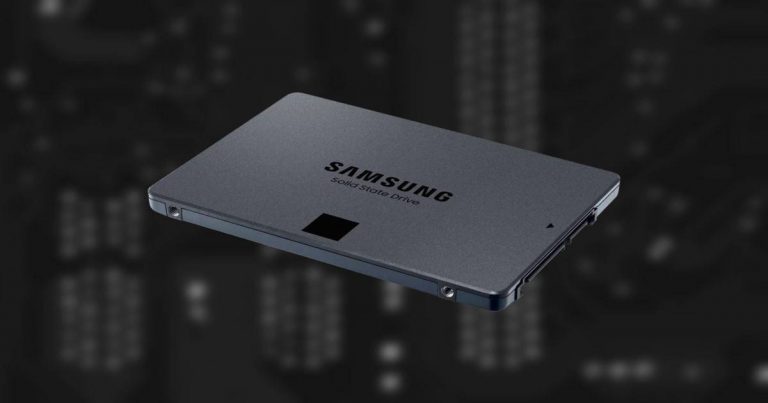SSDs are a godsend. Unfortunately, they are also expensive. Anyone who has upgraded from an HDD to an SSD can attest to the life-changing speed increase. But the prohibitive cost of SSDs as their size goes up means most consumers often opt for 500 GB or even smaller drives. As the market advances, however, the prices can be expected to go down. Samsung’s new 870 QVO is a step in that direction. The company has finally listed the promised 8 TB SSD for retail purchases.
This is the first consumer-grade SSD to vault into 8 TB storage. Some manufacturers did have ridiculous amounts of storage, but often ridiculous prices to go along with them. The price is still a bit high for most consumers to actually buy this, as we’ll talk below. But this release from Samsung undoubtedly pushes the market further in that direction.
What’s The Catch?
First of all, the QVO moniker is quite different from other Samsung SSDs you might have heard of. The EVO and Pros are other 2.5″ SATA drives that the company sells comparable to the QVO. The main difference lies in their memory technology. The QVO series uses Quad Level Cells (QLC) memory, which means 4 bits of data are stored in every cell. In contrast, the EVO and Pro series each store 3 bits and 2 bits of data on each cell, respectively. So, they are said to use Triple Level Cell (TLC) and Multi-Level Cell (MLC) technologies.
How does this affect performance, though? For real-life usage, QLC and TLC differ significantly only for continuous usage applications. For bursts, their full speeds are limited by SATA III, so both should get ~500 MB/s sequential reads and writes. The maximum they can reach through the connection is 600 MB/s. This SSD from Samsung also uses a large cache if available, elevating performance in certain situations. For this particular 8 TB SSD, the sequential read/write speeds are 560/530 MB/s. The 4K random read/writes are 98k/88k IOPS, once again similar to those offered by EVO models.

Due to fewer bits being used in TLC (and MLC), it can run for more cycles before failure is likely. This is measured in terms of Terabytes Written (TBW) warranty. Compare the 2400 TBW for the 860 EVO and the 1440 TBW of the 870 QVO, for 4 TB models. This 8 TB variant has a TBW of 2880 and a 3-year warranty.
So, the main caveat is that while it is sufficient for gaming or light usage, the QVO series struggles for NAS and intensive use cases. But the higher storage would be a premium for those markets, so that’s the deal you get. And Samsung’s ‘budget’ SSD might not be that budget after all.
Pricing and Conclusion
You might have noticed that doubling storage for a drive tends not to double the past price, especially for HDDs. However, the 870 QVO is listed at 830 Euro/USD. That’s still higher than 100 USD per TB. Samsung prices their drives a bit higher than, say Crucial does, at comparable quality. So, we don’t find the 8 TB 870 QVO that compelling of purchase, only because it offers non-top-tier performance at exorbitant prices.
This product will be available to customers starting from the last week of August. If you are constrained for space but still want a whole lot of storage, then there’s nothing wrong with this SSD. Price-conscious users might want to hold out a little longer for the competition to make a move.
